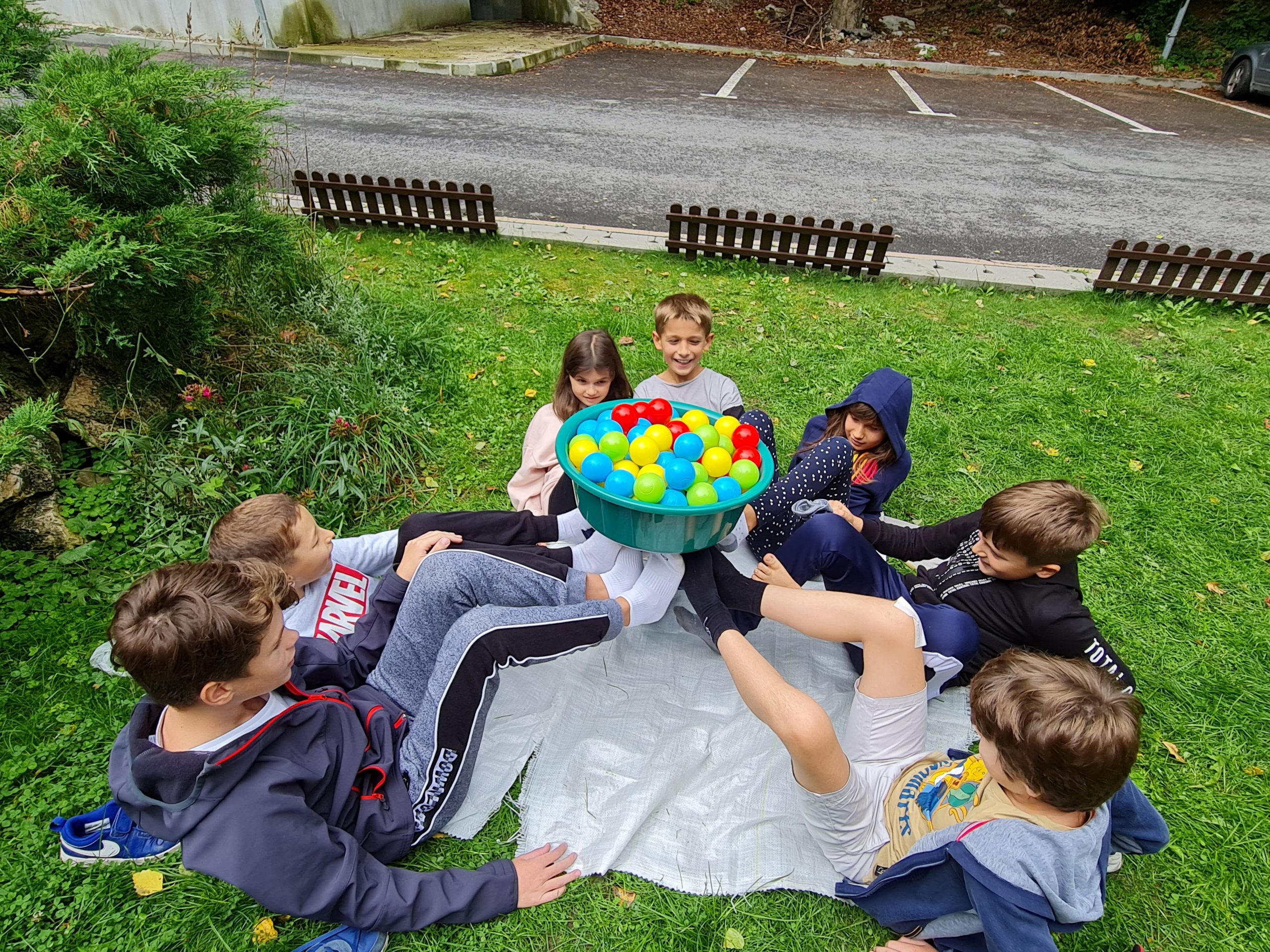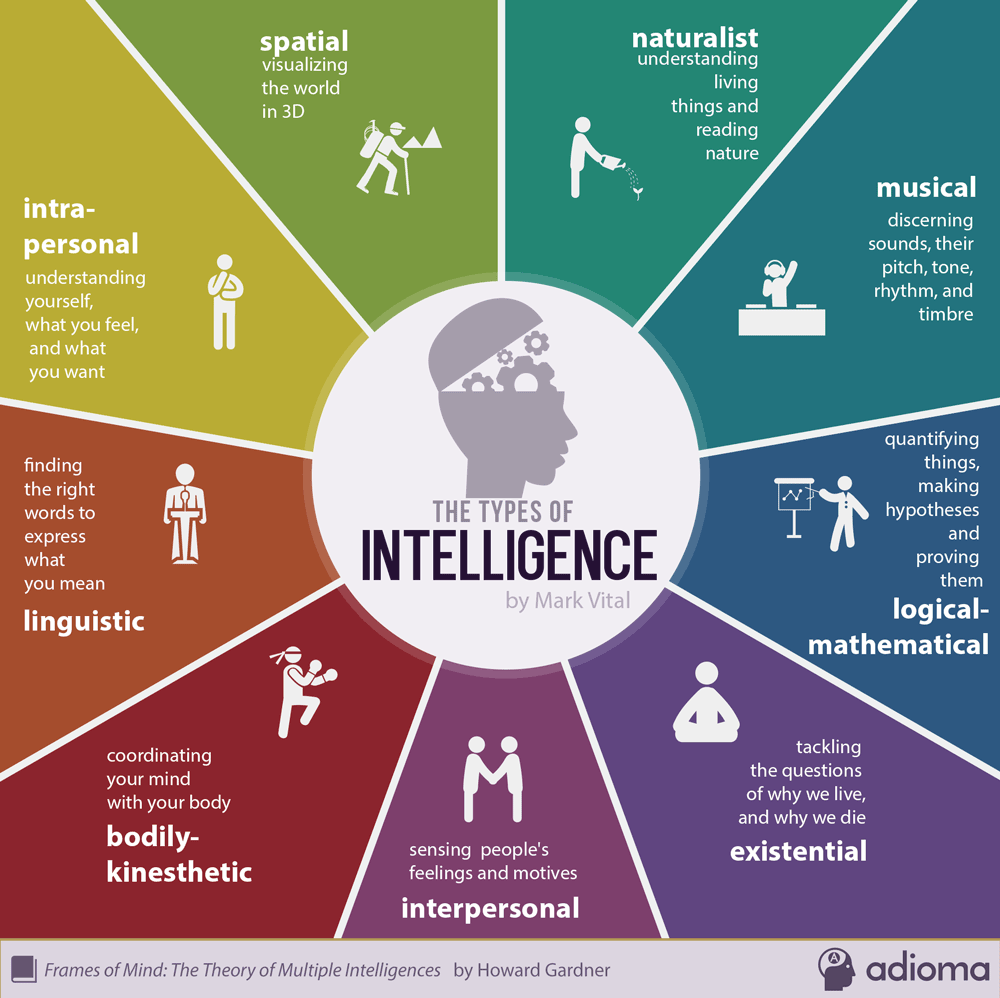
9 types of intelligence, 9 different approaches
From Homosapiens to modern man, specialists have analyzed and tried to understand ... intelligence. Throughout time, intelligence has been defined in many ways, being viewed as the ability to reason, understand, self-awareness, learning, emotional intelligence, planning, creativity, and problem-solving. It can be broadly described as the ability or inclination to perceive or infer information and retain it as knowledge to apply it to adaptive behaviors in an environment or context.
9 types of intelligence, 9 different approaches
Harvard psychologist Howard Gardner elaborated in his book "Frames of the Mind: The Theory of Multiple Intelligences" that people do not have a predetermined intellectual capacity, but rather several types of intelligences, for example, a person can be musically intelligent, but not so good with numbers.
In this paper, Gardener argues that traditional psychometric views of measuring intelligence are too limiting and cannot capture all the abilities and talents that people possess. He states that it would be incomplete to judge someone's intelligence by only one or two factors. Instead, to help us understand each other better, Gardener explains the nine types of intelligence we can encounter.

Naturalistic intelligence
Naturalistic intelligence involves the ability to identify, classify and manipulate elements of the environment, objects, animals or plants. Because of this type of intelligence, we are able to recognize the differences between species, groups of people or objects and understand how they relate to each other.
From the series of characteristics of this intelligence we find:
- Desire to understand how things work;
- Care for the environment and the need for contact with nature;
- Desire to explore fauna and flora;
- Interest in using instruments that help observation - microscopes, binoculars, telescopes -.
- Inclination for scientific careers – biology, botany, chemistry, zoology, etc.
Musical intelligence
Musical intelligence is one of the first intelligences we develop from childhood. This kind of intelligence is essential in the life and development of human beings. Musical intelligence allows us to interact with other people, expand our thinking, and develop our organizational and concentration skills. These skills can be acquired from childhood, both in the classroom and at home. The more exposure we have to identifying rhythms, melodies, and tones, the better our ability to develop this intelligence will be. People who develop this intelligence:
- They have a penchant for learning to play different instruments or using their own voice;
- The desire to hum different melodic lines, in different contexts;
- Appreciate music;
- Interest in composing songs;
- Inclination for artistic careers – composers, performers, dancers, actors, etc.
Logical-mathematical intelligence
This type of intelligence allows us to operate with numbers and logical patterns, develop our strategy and problem-solving skills, and form excellent reasoning skills.
The characteristics for this intelligence are:
- Excellence in solving complex problems and calculations;
- Propensity for scientific experiments;
- Abstract ideas and exceptional analytical ability;
- Organization and classification skills etc.
Existential intelligence
- People who are characterized by existential intelligence are often deep philosophical thinkers and have the ability to seek answers to countless questions;
- Enjoys journaling and communicating with others about how they spend their time;
- They like to help people or animals and are eager to participate in charitable activities;
Intrapersonal intelligence
Intrapersonal intelligence is the process of knowing yourself, identifying what you want and don't want, and accepting your strengths and weaknesses. When we understand and accept ourselves, we can work to build on our strengths.
People with intrapersonal intelligence:
- They begin to know other people by knowing themselves;
- They have a natural intuition;
- They are independent and have great self-confidence.
- Inclination to analyze the events they experienced.
- They seek to understand their own mistakes in any negative event they experienced, to avoid similar situations in the future, etc.
Linguistic intelligence
Linguistic intelligence is one of the most well-known types of intelligence found in humans. It involves our ability to think in words and use those words to make ourselves understood. People with high linguistic intelligence are very good at expressing their feelings and thoughts in words and are drawn to activities such as reading, writing and public speaking.
- Linguistic intelligence is the ability to think in words and use language to express and appreciate complex meanings;
- Linguistic intelligence allows us to understand the order and meaning of words and to apply meta-linguistic skills to reflect on how we use language;
- Linguistic intelligence is the most widely shared human competence and is evident in poets, novelists, journalists and effective public speakers.
Bodily-kinesthetic intelligence
People with a high level of bodily-kinesthetic intelligence have an excellent sense of timing and great mind-body coordination, as well as fine and gross motor skills.
Interpersonal intelligence
Interpersonal intelligence refers to a person's ability to relate well to people and manage relationships. This allows people to understand the needs and motivations of those around them, which helps strengthen their overall influence.
- People with interpersonal intelligence seem to stand out in a crowd as people with many friends and can easily adapt to social situations;
- They communicate effectively and enjoy participating in discussions and debates;
- People with interpersonal intelligence are characterized by their sensitivity to other people's moods, temperaments, motivations, and feelings.
Spatial intelligence
Spatial intelligence is defined as the ability to consider things in three dimensions. People with high spatial intelligence are generally very creative and usually have a vivid imagination, high artistic ability, and excellent spatial reasoning.
A good understanding of different types of intelligence provides a broader perspective on how people function, pointing out that there is a great deal of potential and capacity for growth that we can explore.
Make here take a test and find out what your dominant intelligence is!
*Article written by Veronica Dunga, KEN Academy trainer.
